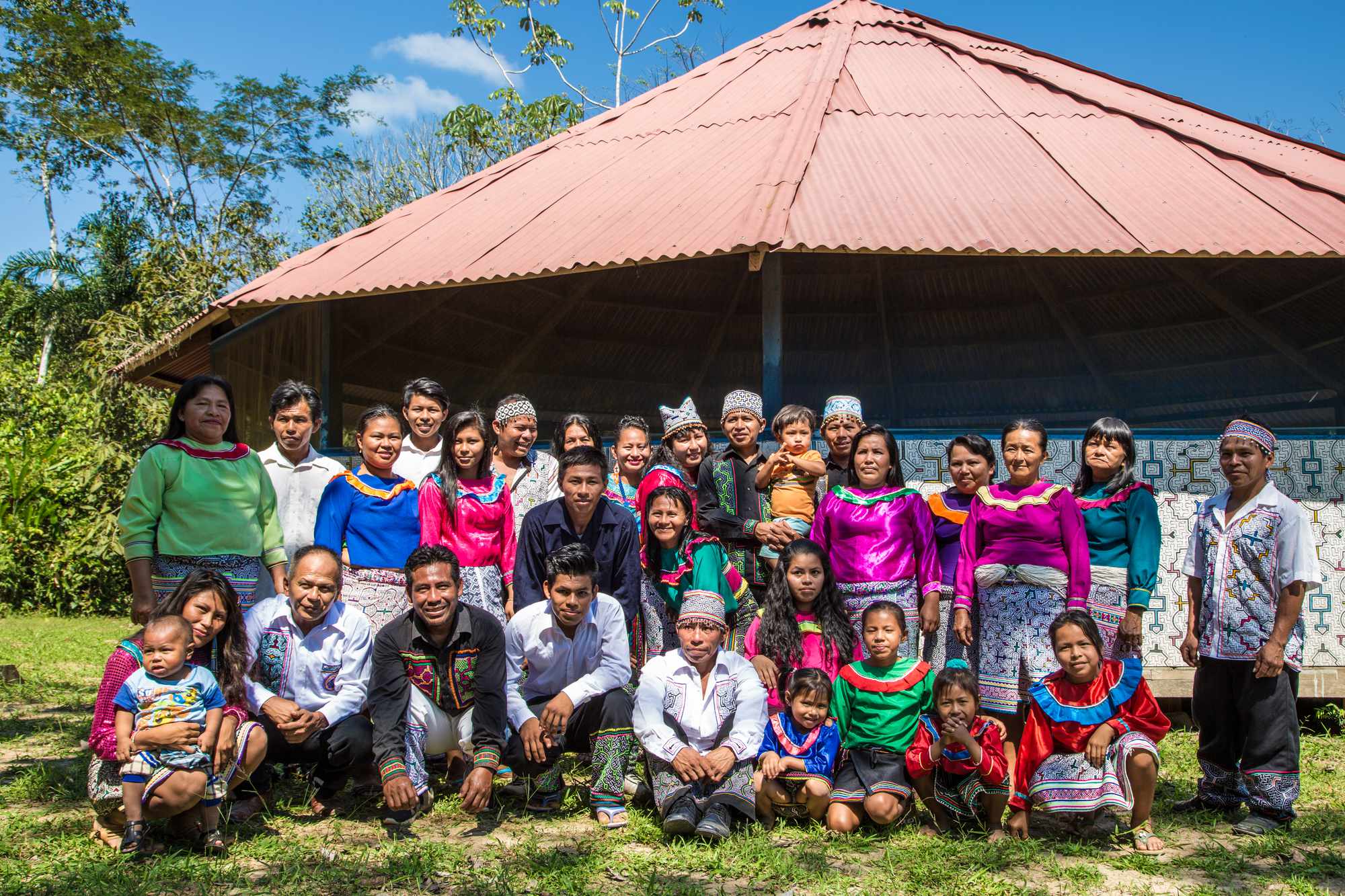The past few months have been huge for Indigimedia, in terms of embarking on our first full project together as a team. It feels to me as if this project was destined to be by higher forces. The initial concept of Indigimedia was seeded in the Shipibo-Conibo community of Ceilan in 2014 by Monte Amador and Chris Scholten, deep in the Amazon rainforest, and it is this same community we will be working with for our first full-time project as team of creators, dreamers, and activists, inspired to come together and use our skills in media production to work for a better world and create tangible positive social change through our work with different traditional indigenous communities.
As Monte and I have spoken about on numerous occasions, as a team of creative individuals, we are the wheels and the motor of the Indigimedia bus, and together through our collective effort we keep the bus running, but it feels to me as if there is a higher power, a universal energy, that is driving the bus and is fueling the organic evolution of our team. For me personally, to trust in this idea is to trust in the process, in the development of what we have set out to achieve together, and to have faith that this seed of our company will continue to grow organically over time, much like a plant, into something much much greater than any of us could have possibly dreamed of, either as individuals or as a collective group of creatives and entrepreneurs.
I cannot stress enough the importance of this current project we are working on with the traditional indigenous Shipibo-Conibo community of Ceilan. This is a community is a large group of families that are deeply rooted in their traditional culture – in thousands of years of traditions that are guided by the wisdom of their ancestors, and the community actively continues to practice its traditions to this day. The families of Ceilan are guardians and stewards of the Amazon rainforest, and they have retained an unparalleled knowledge of medicinal plants with which they have the power to heal almost any ailment known to humanity.
Unfortunately, like most communities deep in the Amazon, they are surrounded by the invasion of multi-national corporations (MNCs) who have engaged in backhand and often corrupt deals with the Peruvian government to purchase land throughout the Amazon for logging, mining, and other destructive business practices, all of which are decimating the literal lungs of our Mother Earth. The immense environmental destruction and pollution generated by these MNCs have poisoned much of the water resources of the Amazonian rainforest, and thus the community of Ceilan and many other traditional indigenous communities like it have been left without access to clean drinking water among other hardships like loss of their ancestral homelands and native territory.
Due to the pollution of the Ucayali river, its tributaries, and other streams and lakes throughout the amazon, the community cannot simply fetch water from the river without running a high risk of infection and disease from drinking the contaminated water. Therefore, the core purpose of our current project with the community of Ceilan is to help them raise funds to install a new water tower in their community. Monte and I met with Alberto Sinti Reategui, the President of the Non Bai NGO, and his wife Maria Quispe Diaz, the treasurer of the NGO, to discuss the project in detail. He informed us that the estimated cost to hire a professional team to install the whole new water system in the cultural center of Ceilan, which would supply water to their entire community, is 15,000 Peruvian Soles, or 4,550 USD.
This invasion of corporate capitalism and industrialization, in conjunction with the historical effects of colonialism and the influence of state and westernized education systems, is threatening not only the intergenerational transmission of Shipibo-Conibo ancestral knowledge and traditions, particularly knowledge of medicinal plants and healing practices, but has also endangered the self-determination of the Shipibo-Conibo peoples as a collective ethnic group.
The ancestral way of life of the community of Ceilan, their cultural values, and the ancient wisdom and knowledge and of their indigenous brothers and sisters of the rainforest are being threatened by the corporate capitalist business interests of these MNCs who simply seek to make a quick profit without regard for the wellbeing of our human family.
In response to these continuing tragedies, Indigimedia is delving into a long-term feature documentary film project centered around the daily lives of the to the community members of Ceilan, as a means of documenting the greater socio-political and economic situation faced by Shipibo-Conibo communities throughout the Ucayali region and the greater Peruvian Amazon. In direct collaboration with the community of Ceilan and their NGO Non Bai (www.nonbai.org), through a community based participatory framework, the primary goal of our new documentary project is to garner long-term economic support for the cultural preservation and revitalization projects of Non Bai. Additionally, it is our long-term goal with this project to spread the word of the grave problems occurring in the Amazon and inspire others to become involved in activism to defend and protect the Amazon and stand in active solidarity with its peoples and support their needs, initiatives, goals, dreams before it is too late.
For more information about the current active organization and resistance of Shipibo-Conibo communities in the Ucayali region, please check out this insightful article: http://realitysandwich.com/323245/in-the-declaration-of-yarinacocha-shipibo-healers-organize-to-resist-spiritual-extractivism/
This piece outlines the recent formation of the Shipibo-Conibo Association of Onanyabo/Ancestral Healers and their powerful new “Yarinacocha Declaration” focused on the following themes: The Shipibo-Conibo peoples rights to self-determination, territorial sovereignty, education, cultural and political empowerment, and cultural preservation and the protection and cultivation of ancestral knowledge for future generations. The Yarinacocha Declaration also stands strongly in defiance of the dangerous force they call “spiritual extractivism.”
